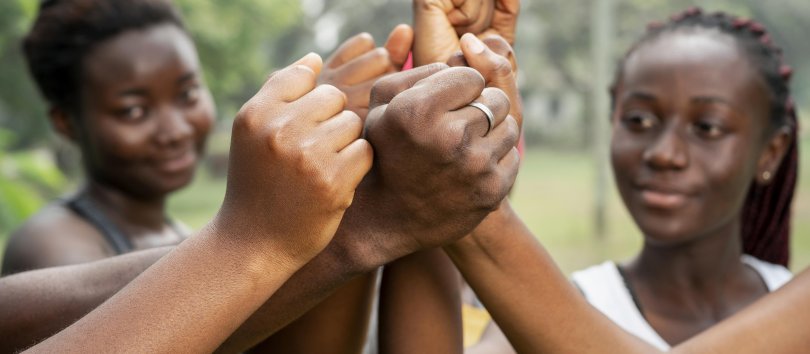
Empowering marginalised communities in northern Nigeria
Green skills training: a way to alleviate poverty?
Northern Nigeria is facing a raft of problems. It is economically disadvantaged compared to the rest of the country, with 87% of poor Nigerians living in the north. There is a limited access to education and basic infrastructure such as electricity, clean drinking water and sanitation. Job prospects are low. There are also over 2.9 million internally displaced people due to insecurity related to militant groups like Boko Haram and banditry, according to the United Nations.
To try and turn the situation around for marginalised communities, Sani Saidu Muhammad set up the Taimako Community Development Initiative (TCDI) to implement a green skills training programme as well as provide quality affordable education and clean energy. “Taimako” means “help” or “assistance” in Hausa, the dominant language in northern Nigeria.
One of the 575 applicants to the Green Skills Award 2023, Sani applied to highlight the work the TCDI is doing and seek foreign sponsorship to better impact more lives in northern Nigeria.
“The TCDI, in collaboration with the Nigerian government and other stakeholders, identified the need for green skills training to create sustainable employment opportunities and reduce poverty in marginalised communities,” says Sani. “In northern Nigeria we have a very high poverty rate. It is classified as the poverty capital. There are significant challenges due to limited access to quality education, healthcare and employment opportunities.”
The TCDI started in 2020 as a community-driven initiative aimed at empowering women in the Taimako community. Over time, it has evolved into a comprehensive programme that includes skills training, entrepreneurship development, and the promotion of clean energy technologies. So far, the TCDI has provided entrepreneurship development training to over 200 individuals. The project has also installed over 50 solar-powered street lights and provided clean cooking stoves to over 100 households.
Community engagement
The TCDI has six employees and twenty-five volunteers to implement its programmes. Teaching is usually done at community schools, while online platforms are also used to have wider reach.
“We use a multifaceted approach to minimise costs, and have efficient capacity building. We usually conclude projects by evaluating the outcomes, which typically have a 80 to 90% success rate,” says Sani.
Programmes are developed through community engagement with local communities.
“We conduct community meetings, listen to the needs and involve people in the decision-making process. Building trust is essential for successful collaboration, and to ensure the leadership reflects diversity and inclusivity, to foster a sense of ownership,” he says.
Sani, 30, has graduate and undergraduate degrees in economics, among other qualifications, and was recently conferred with an honorary doctorate in leadership and humanitarian services from the Commonwealth University College in Nigeria. He is keen to spread his knowledge in his community, which is about 200 kilometres from the country's administrative capital, Abuja.
Sani says there is a great need to better integrate into society marginalised communities, including LGBTQ [lesbian, gay, bisexual, transgender, queer/questioning persons], as discrimination is exacerbated by poverty and inequality.
“We want to involve all marginalised communities – women, youth, internally displaced people, refugees and the LGBTQ community.”
Over the next five years Sani hopes that marginalised communities can be more empowered to transform their lives.
“We see ourselves expanding our reach and what skills we offer, to reach more marginalised communities, and increase participation and inclusivity,” he adds.
Sustainable businesses and communities
The TCDI wants to create employment avenues for its students, particularly in sustainable agriculture, water management and renewable energy. It also wants graduates of the programme to establish their own business, and to reach gender equality milestones.
“Women play a vital role in the green economy, and to have over 50% female participation will be a notable milestone,” says Sani.
The initiative hopes it will be able to achieve a demonstrable reduction in poverty in the community, and for the model to be replicated elsewhere.
“In five years I foresee environmental impact through education in climate resistance, advocacy and resilience. We hold potential for empowering marginalised communities to become a catalyst and create ripple effects beyond northern Nigeria. And a commitment to social justice, and for long-term success,” Sani concludes.
Did you like this article? If you would like to be notified when new content like this is published, subscribe to receive our email alerts.